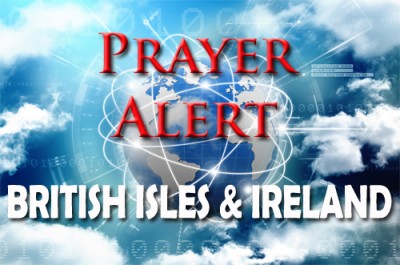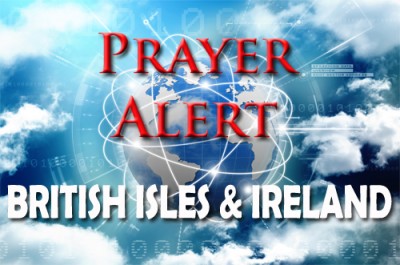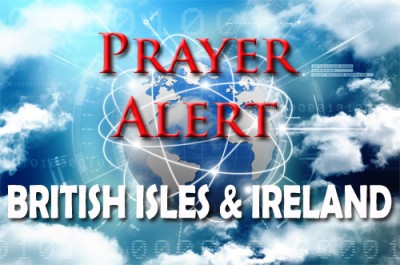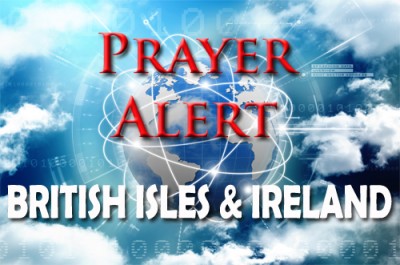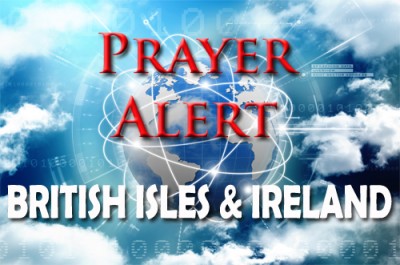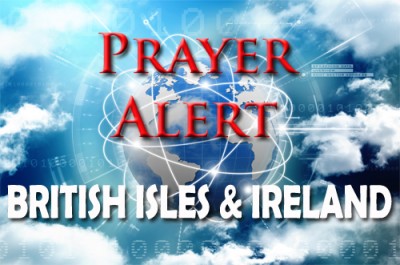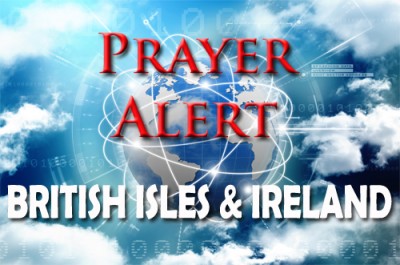Hope for USA’s soul
11 Nov 2016Many people have become discouraged for America’s future during this election season. Many have struggled to be optimistic amidst the divisiveness seeming to plague the country. Pastor Rick Warren sees solid reason for hope, and specifically lists five reasons he believes are grounds to hope for a ‘spiritual rebirth for America’. First, faith often grows the most in dark times: people realise they need God when times are hard. Second, the ‘millennial’ generation is spiritually hungry and seeking real purpose and community. Third, there are millions of God-fearing people living in America, living devoutly for God every day without fanfare - not out of guilt or fear or duty, but in gratitude and love to God for their transformed lives. Fourth, contrary to popular opinion, more people are turning to faith rather than to secularism. Lastly, God’s promise to hear prayer still applies.
Down’s syndrome screening
11 Nov 2016The government has approved a new test (NIPT) to make it easier to detect babies with Down’s syndrome in pregnant women. The NHS intend to make NIPT available next year. This has led to a campaign ‘Don’t screen us out’. 90% of Down’s babies are aborted. NIPT will increase the number of children with Down’s screened out and terminated. A British Medical Journal report said annual screening of 698,500 offering NIPT will result in 195 more Down’s babies being detected. Recently 279 medical professionals accused the Royal College of Obstetricians and Gynaecologists of advocating that pregnant women with a prenatal diagnosis of Down’s syndrome should have an abortion. The move to introduce NIPT is also backed by powerful commercial interests, notably two of the companies which supply the tests. The real victims are babies with a common genetic abnormality whose eradication will lift a perceived burden from some and make others very rich indeed.
Trump and relations with UK
11 Nov 2016The election of Donald Trump is an unpredictable factor, with possible knock-on effects for Britain. His victory speech pledged to ‘get along with all other nations willing to get along with us’ and to deal fairly with everyone seeking common ground, not hostility; partnership, not conflict. Theresa May said she was ‘looking forward to working’ with him, in a strong ‘trade, security and defence ’ partnership. Previously, Mrs May called his campaigning comments on Muslims divisive, unhelpful and wrong, while Boris Johnson said he wouldn't visit New York due to the real risk of meeting Trump. However, he now says he is ‘looking forward to working with Mr Trump on global stability and prosperity’. President Obama had warned that the UK would go to the ‘back of the queue’ for US trade deals if it voted for Brexit. The Trump camp is more positive and ‘absolutely wants’ to strike a trade deal with the UK, whether in or out of Europe. See also Christian Voice comments at:
What are they teaching the children?
11 Nov 2016Sexually transmitted diseases among teenagers; teen pregnancy and abortion; porn addiction; mental illness; inability to form and sustain relationships - the list goes on. Over recent years the UK has seen cultural, social and political change as the result of changing attitudes towards sexuality and gender and the combined, but often conflicting, pressures of secularism and multiculturalism. Education has reflected this shift, teaching that many once-traditional values are increasingly being banned by law. The policy of giving ever more information without any moral frame has been a spectacular failure and, with the disintegration of what are now branded repressive values, we face a growing crisis that affects the physical, mental and emotional welfare of our young. Today and tomorrow there is a major conference at the Emmanuel Centre in London, aimed at discussing and tackling these problems. Pray for the delegates to digest and act on all that is learnt and considered at the conference.
Archbishop prays for reconciliation
11 Nov 2016The Archbishop of Canterbury called for reconciliation in the USA, after the most bitter election campaign in modern history. Justin Welby pledged to ‘pray for all the people of the United States’ in the wake of Donald Trump's victory. He said, ‘As President-elect Trump prepares to take office, my continuing prayers are that the USA may find reconciliation after a bitter campaign, and that he may be given wisdom, insight and grace as he faces the tasks before him.’ His statement was muted and contained no message of congratulations. Evangelical Christian blogger Ian Paul said, ‘The election of Trump is a stand against the relentless march of globalisation, just as was the vote for Brexit for many people.’ Chine McDonald, director of communications at the UK Evangelical Alliance, tweeted, ‘Sad day to be a woman. Sad day to be black. Sad day to be an evangelical. Feeling numb. #USElection2016.’
Scandalous treatment of disabled and unemployed
11 Nov 2016A recent UN report states that the UK’s treatment of disabled people ‘violates basic human rights’. Meanwhile more measures are being introduced to worsen the plight of the worst-off families, with grave consequences. These include a further-reduced cap on benefits for households in which no adult works full-time, and less cash for many too sick or disabled to work. The bedroom tax is to be inflicted on pensioners, and it may be made harder to get unlawful benefit decisions overturned. An earlier UN report pointed out further violations affecting those already disadvantaged. The findings from the Committee on the Rights of Persons with Disabilities highlight the urgent need for change. There is reliable evidence of ‘grave or systematic violations of the rights of persons with disabilities’. The core elements of the rights to independent living, being included in the community, adequate standards of living, social protection and rights to employment have been affected.
Tram derailment: churches join PM in prayers
11 Nov 2016Churches joined the Prime Minister in assuring affected families of their prayers after five people died and 50+ were hospitalised when a tram tipped over in Croydon. Emergency services spent hours freeing trapped people. Theresa May said, ‘My thoughts and prayers are with all who have been affected. The Government is closely in touch with the emergency services to ensure that all that is necessary is being done.’ Tom Thompson, senior pastor at Croydon Vineyard church, said, ‘As the people of God, we want to stand up and say that we recognise this as a moment that requires our solidarity with our community'. The assistant priest at a local Catholic Church said, ‘People need a sympathetic ear, empathy, someone who perhaps can bring a different perspective to things; we are ready for people all the time, whether it's major or minor incidents in their lives.’
London man convicted of terror offences
11 Nov 2016Jabed Hussain, from Acton, pleaded guilty at the Old Bailey on Thursday to two counts of preparing terrorist acts after being caught at the Turkish border. The 22-year-old first attempted to reach the IS strongholds in August 2015, but was detained by Turkish authorities at the border and returned to the UK. Continue to pray for UK Police's Counter-Terrorism Command as more potential jihadists attempt to join IS in its territories, or return to the UK after being trained abroad. Last month it was reported that IS has been recruiting violent criminals and gang members across Europe in a dangerous new ‘crime-terror nexus’. Pray for Interpol and other agencies to thwart and close down terrorist cells wherever they attempt to spring up.

